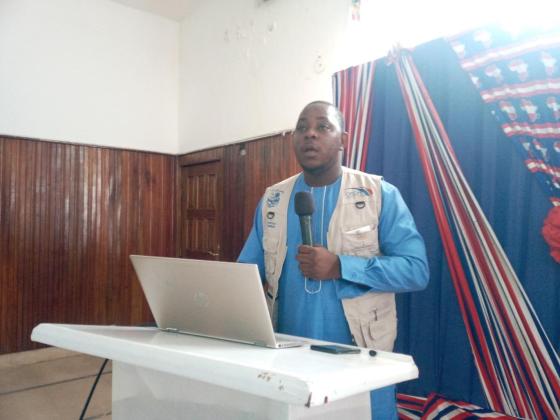Liberia: Women in Parliament Remains Very Low

— Findings of survey reveal
Findings from the Liberia Elections Observation Network (LEON) have shown that the underrepresentation of women in the legislature still constitutes a serious democratic deficit, which, if not critically addressed, could undermine the legitimacy of the contemporary democratic deal in Liberia.
“The participation and percentages of women in leadership roles and the government are still lacking. There is a need for an ongoing campaign for gender parity, and women have increased participation,” the findings reported.
The findings, released on Friday, December 9, show that there is a low representation of women in the parliament, with only seven members in the House of Representatives and two in the Senate.
The Head of the Secretariat, Augustine S.M. Tamba, who presented the challenges affecting women’s participation in electoral processes in Liberia and the official launch of the 2023 roadmap, explained that the process to know the representation of women in the Legislature was conducted throughout the country, especially across the 73 electoral districts in all 15 counties.
He said the findings also aimed to ascertain how the information can best be used to strengthen and ensure recommendations to key stakeholders and influence increased women's participation in the electoral and political processes across community and government levels.
Tamba said the findings also showed that more females would vote for women in community elections than males.
“This survey sought to understand the political context, particularly how political parties act as barriers to or supporters of women standing as candidates and getting elected,” he noted.
Tamba informed the body that political parties play a very crucial role in the political representation of women, adding that they are gatekeepers for women who aspire to be candidates.
He observed that political parties can act as impediments to achieving an increase in women's political representation.
The survey also found that 81.2% of respondents acknowledged that political parties are more likely to nominate men for office than women.
Tamba said the findings are both reflective of existing data, which can reinforce the necessity for a gender quota during the next general election, transparent candidate recruitment processes among parties, and increased awareness of the importance of women’s participation in community governance amongst men which can help to shift perception.
Tamba explained further that what concerns his organization is that a small majority of respondents (58%) are satisfied with the current female representation in the legislature, even though female representation remains at 6.6%.
According to him, this shows the need to improve citizens' understanding of representative democracy and the beneficial impact of increasing women’s representation in politics and overall decision-making.
“Women are affected by the prevailing cultural assumptions and stereotypical views in society. Men are assumed to have primary responsibility for activities in the public sphere, the economy, and political life, while women have primary responsibility for the private sphere of home and family.”
Tamba said these stereotypes are used to justify and maintain systemic and oppressive power dynamics between men and women.
He recommended that stakeholders work towards programs that address women’s access to resources, including but not limited to providing small start-up funds, training to improve women’s fundraising skills, gathering mutual funds, and reducing NEC and party registration fees for women.
Tamba, however, said women’s presence in government and the political space is vital because it can help reshape the political agenda, promote women’s interests, and influence decision-making and procedures.
The launch of the survey findings was graced by representatives from local and international partners, including the Embassy of Sweden, USAID, EU, UNDP, Carter Center, House of Representatives, IREDD, and WONGOSOL, among others.
